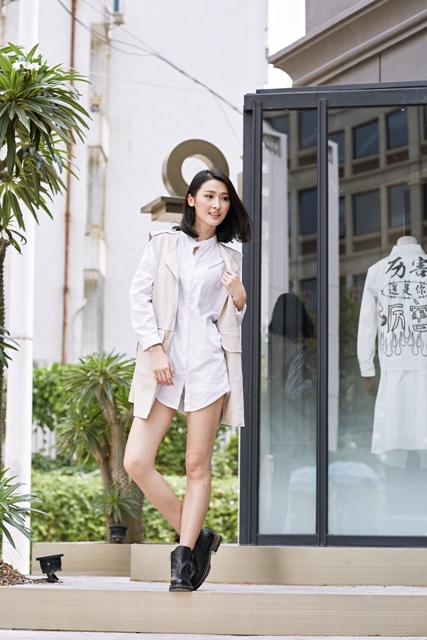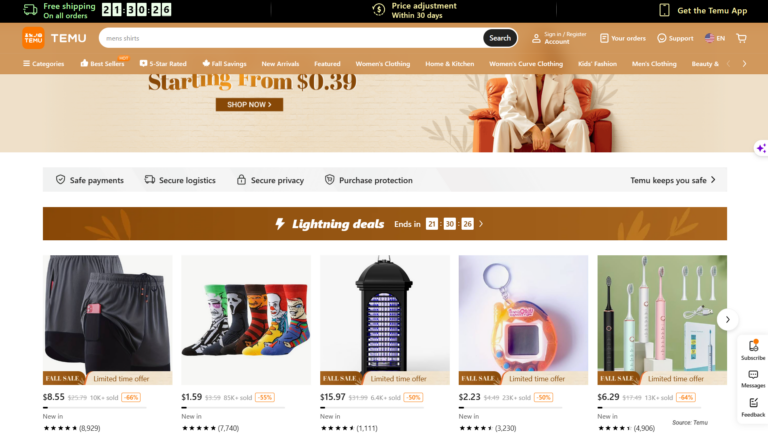The new trendy word in China is sustainable, given the arrival of new products and green initiatives in the Chinese market. Many Chinese fashion brands have joined this new green trend and are becoming more Eco-conscious. At the current time, it is considered as a good commercial investment to go green in China, and this is the reason why more and more brands luxury announced their sustainability initiatives.
This is already the case for a lot of shops based in Shanghai, which are working hard to develop environmentally conscious business initiatives throughout China.
Fast-Fashion Brands in China
Nowadays, fast fashion has become a new trend in the fashion industry. International fast fashion brands have already entered the Chinese market and tend to conquer the new Chinese generation, but for doing so they need to differentiate from the competition. One of the channels of communication is the use of the social media. Chinese consumers are internet savvy and they love spending time watching the online website for seeking new brands and/or products.
While China’s luxury retailers have struggled to achieve their goals lately, the Fast-fashion brand is taking the lead. Indeed, rental of retail space for fast-fashion brands such as Uniqlo, Zara, has continued to grow in the world’s second-largest economy, despite the slowdown in economic growth. in effect. Marketing is the main asset of the fast fashion industry in China, thus through the promotion of fashion consumption as something fast, cheap and disposable. The continuous release of new products, only makes clothing a very attractive marketing tool that drives visits to consumption, increases the popularity of the brand, and results in very high levels of consumer purchases.
The business of fast fashion model is based on reducing the time from production to consumption. Therefore, production is as important as Marketing.
Ethical Brands in China
- NuoMi located the Shanghai shop has provided an elegant feminine style, accessories and children’s clothing made with fabrics respectful of nature, such as organic cotton, raw silk, yak, soybean, flax, wool and bamboo. The Shanghai Stock of NuoMi can store a large number of sustainable products, among other towels, toys, pillows, handbags, jewelry and a baby line. The current collection of women’s fashion spring/summer stresses flowing fabrics and elegant drape, which, coupled with their lightweight natural fabrics, makes them perfect for a long hot summer season in Shanghai. It is the elegant women’s fashion, accessories and children’s clothing made from earth-friendly fabrics such as organic cotton, raw silk, yak, soybean, flax, wool, and bamboo.
- Finch was founded by Heather Kaye and Itee Sony, with many years of industry experience in international fashion. Disappointed by the environmental impact of the clothing and the growing appetite of the fast fashion industry, Kaye and Soni have gathered to launch a clothing brand that was designed using organic and sustainable fabrics with their own and green supply chain. This brand does its best to serve customers with the mind, the respect of nature. Finch is known for colorful, printed good quality that is made to last. It uses much more organic and sustainable fabrics of high quality available, and the production of its range with manufacturing partners are very concerned about the environment, fair labor practices, and outstanding workmanship.
- Wobabybasics, created by former Canadian architect Sherry Poon, this local brand in Shanghai specializes in durable baby clothes. Only a few years ago, it was almost impossible to find baby clothes that were both organic and attractive in Shanghai. To address this problem in the market, Poon decided to design and produce its own line of organic clothing for babies and children’s clothing. She then chooses to create fashionable and functional clothes with organic cotton that is made in China. This Shanghai-based brand leader in children’s clothing proposes ethical and eco-friendly clothes.
- Snoozer is a range, created by Sonia Tay, which in dresses, scarves, shorts, and blouses are bold and fun. While keeping the freshness, and its independent rating has attracted an increasing number of Chinese customers. Hand dyed with natural pigments, Snoozer Loser is an antidote to the green landscape of monotonous fashion. He makes Indie-feel, eco-clothing and accessories from overstocks vintage fabrics and certified organic materials.
- Ultra, is a product of China and Malaysia, a joint venture company with a common design idea. Their first mission is to associate sustainability with innovative design. These are forward-thinking principles to people who want to fight the fast fashion trend. The clothes are made with fibers of soy and bamboo, with biodegradable and other innovative fabrics.
- Icicle, created 14 years ago by a teacher of fashion in Shanghai, Icicle provides good clothes for work that allows the user to feel comfortable and relax. Natural fibers are used by this brand to give additional flexibility. With great eco-clothing manufacturer, Icicle China has double its sales and profits over the last few years. It proposes a collection of basic clothes with conventional and organic working clothes for men and women, and the baby clothes are also available.
- H&M, Although it is classified as one of the pioneers of the fast fashion in the world. H&M has also decided to take part in the great ecological trend in the fashion industry, proposing a conscious collection, focusing on women’s clothing, men and children from green materials. The brand has launched new lines of organic cotton and recycled polyester.
Indeed, fast fashion industry are always looking for opportunities, in order to grow their market. Their wishes are to highlight that stylish fashion design is also possible with eco materials.
Contact us to have more insights about China’s market at dx@daxueconsulting.com





